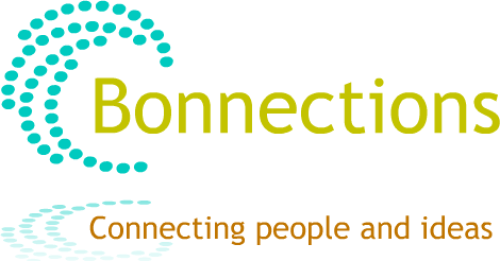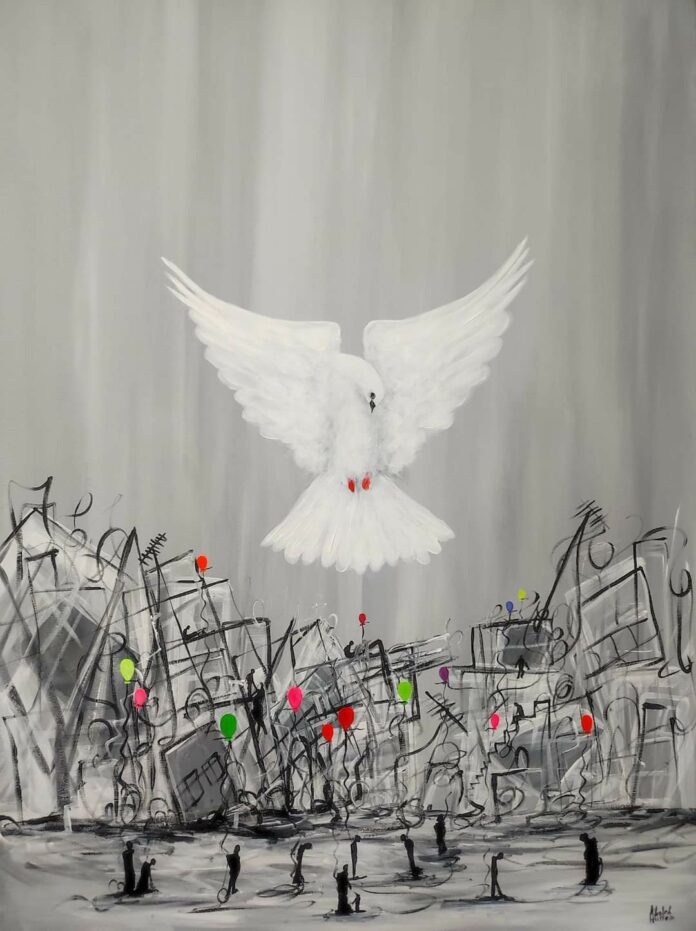“Making peace with nature is the defining task of the 21st century.” – UN General Secretary António Guterres
The Bonnections Initiative continues the Make Peace with Nature event series that we started two years ago with the local Parents for Future and Artists for Future chapters. During the Bonn Peace Days and SDGs Days in September, we are inviting people again to an intercultural dialogue -creative, solution-oriented, and intergenerational- about the triple planetary crisis: climate change, pollution, and biodiversity loss.
“Man-made climate change and the war on Ukraine have the same roots: fossil fuels and our dependence on them,” said Ukrainian climate scientist Svitlana Krakovska, when Russia invaded her country a year ago.
We’d like to examine the interconnectivity between the climate crisis, war and conflict from different perspectives in the 2023 Make Peace with Nature Edition. The focus will be on forgotten wars and conflicts in the Sahel and the ongoing conflict and so-called “ceasefire” in Syria.
1.5 Degrees of Peace
The kick-off was a Special Sunday Story Hour Get-Together last Sunday at the Tannenbusch House, which is a place of intercultural encounter and SDG Action Space. In the hybrid event, the award-winning Canadian filmmaker and GenZ activist Kasha Sequoia Slavner introduced her new documentary film project 1.5 Degrees of Peace. Peace and climate activists from Bonn and the Global South joined the discussion.
Kasha’s independently produced debut film, The Sunrise Storyteller, shot at the age of 16, won 30 awards and has been screened at over 60 film festivals worldwide. Partly filmed during a six-month trip through East Africa and Southeast Asia, it profiles young people working on creative solutions to global problems at grass-roots level.
With her second documentary film, the young filmmaker aims to inspire a united global, intergenerational movement for peace and climate justice.
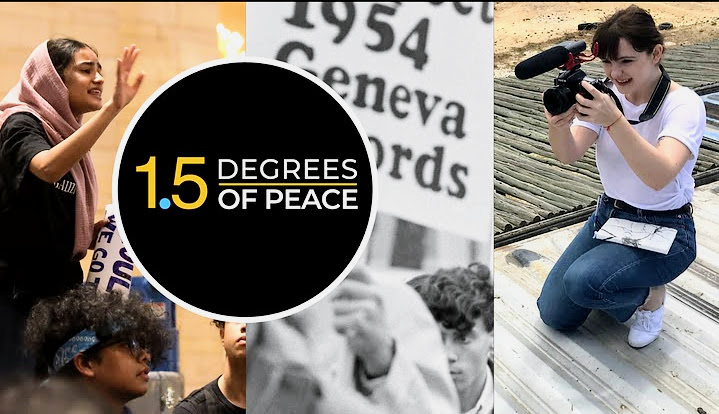
“The concept … is looking at the intrinsic links between peace and climate justice and how we can build bridges between these two movements because if we keep acting in silos, we’re not going to be as … productive as we want to with progressive climate action,” she explained in an interview with the Canadian TV station CBS ahead of the COP26 climate conference in Glasgow.
Slavner points out that, according to the International Committee for the Red Cross, 14 of the 25 countries considered most vulnerable to the effects of climate change are also experiencing some form of violent conflict.
Corridors of Peace
One of these countries is Chad. Domino Francis, an African development worker and peacebuilder, will tell us about the situation on the ground in a Storytelling Café in Bonn on 11 September. (4-6 pm, Netzwerk politik:atelier e.V., Kaiser-Friedrich-Str. 13, 53113 Bonn)
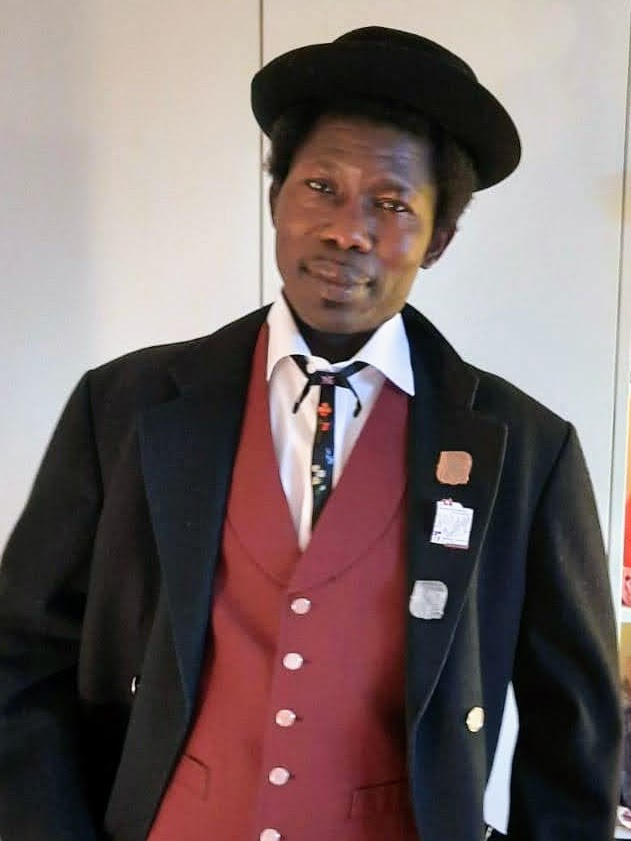
Domino is the co-founder and international director of the charity Corridors of Peace – and a very engaging storyteller. He is a native of Liberia, but considers himself a citizen of the world. Domino will tell us about his life and work in war and conflict zones with the Jesuit Refugee Service and the ongoing conflict in Chad.
Corridors of Peace started in 2020 a Women Empowerment and Peacebuilding project, with support of the Rotary Foundation, in the town of Guereda in eastern Chad.
Cursed by Conflict and Climate Change
In spite of considerable oil revenues, Chad remains one of the world’s poorest countries. Africa’s fith largest country has been ravaged by decades of civil war and bloody conflicts. The violence is underpinned by climate change, competition for land and water, and natural disasters. A peace agreement between the military and rebel groups was signed in August 2022, brokered by Qatar, following the death of the autocratic President Idriss Déby. However, the agreement is very fragile and Chad remains a powder keg, Domino says.
According to the report Breaking the Silence: Ten humanitarian crises that didn’t make headlines in 2022, released in January by Care International, Chad hosts 575,000 refugees from neighboring countries. Additionally, there are 381,000 internally displaced persons, who are living in poverty and precarious conditions, especially women and children.
Says Domino: “Corridors for Peace advocates for lifesaving protection and assistance for migrants, displaced, and marginalized people and promotes solutions to crises. We shine light on the real problems, and proffer solutions to policy makers both local and regional, that help bring sustainable response to those in need.”
After his introductory talk, Domino will be joined by international development experts and participants in a fishbowl discussion, including Oyewole Oginni, Researcher and Sahel expert at Bonn International Centre for Conflict Studies (BICC).
Takuya Furukawa, educational director of the ReDi school for North Rhine-Westphalia and member of the Rotary Action Group for Peace, will also introduce the Rotary Peace Centers program. It offers fellowships for master’s degree peace and conflict resolutions studies and professional development certificate courses at premier universities around the world. Domino is a Rotary Peace Fellowship alumnus.
There are currently six Rotary Peace Centers. The newest, and the first in Africa, at Makerere University in Kampala, Uganda, welcomed its first cohort of Peace Fellows in 2021. A new peace center dedicated to the Middle East and North Africa will be inaugurated in 2024, in collaboration with the Bahçeşehir University in Istanbul.
Sowing seeds of hope despite war and displacement
The artistic centrepiece of the Make Peace with Nature series is an exhibition (Sept. 8 – Oct. 1) of paintings by Syrian-Kurdish artist Khaled Hussein at the House Mondial. (Caritas Bonn. Fritz-Tillmann-Str. 9, 53113 Bonn)
The exhibition shows twelve paintings by Syrian-Kurdish artist Khaled Hussein, in which he deals impressively and emotionally with migration, flight and the loss of homeland and expresses hope for peace and a peaceful coexistence in harmony with nature.
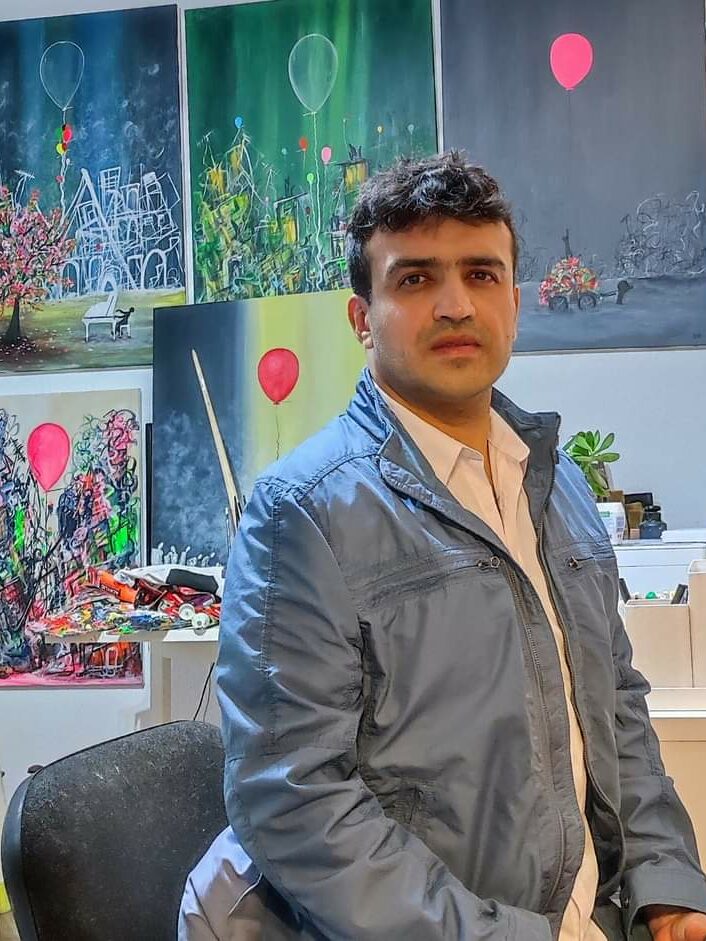
Khaled Hussein was born in Aleppo in 1985 and studied art, painting and sculpture there. Soon after his arrival in Rodgau, Hesse, in 2015, he also became artistically active in Germany.
Says Khaled: “I want to color the dark. I have to show: Life is not only in black and white. Despite all the suffering I’ve experienced in my country, I still hold on to hopeful and joyful colors.”
The vernissage on 8 September (at 6 PM), in the presence of the artist, includes an accompanying artistic program and international culinary buffet. The exhibit will be complemented with works by local Artists for Future and workshops.
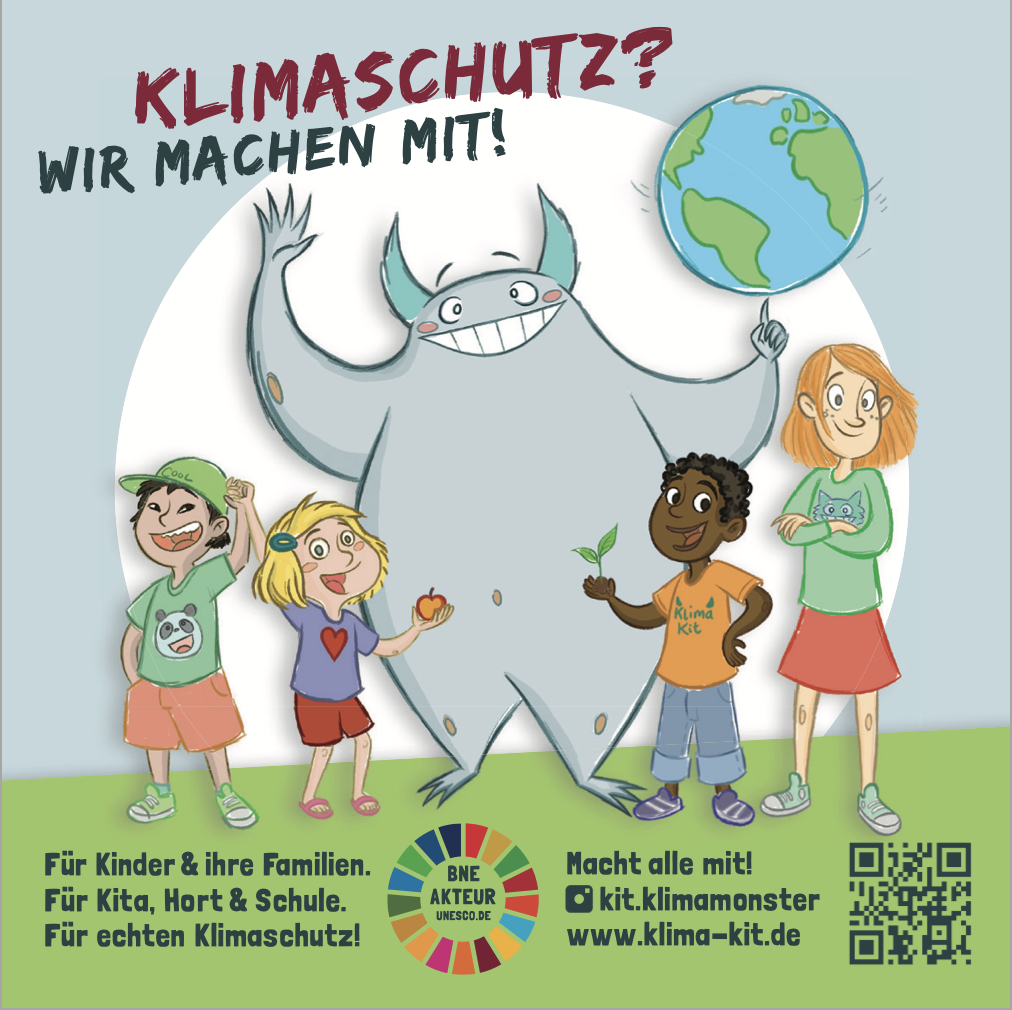
Sept. 29, 4pm – 7.30pm: StoryUp your Artefact – Creative workshop in dialogue with the works of Khaled Hussein. (Free registration: mondial@cartitas-bonn.de)
Oct. 1st, 3pm – 6pm: Finissage with family-friendly activities & art workshop, introducing Kit, the Climate Monster of Parents for Future.
End Fossil Fuels – Fast Fair Forever
In a landmark move, the UN General Assembly passed a resolution in July 2022 recognizing the “universal human right to live in a safe, clean, healthy and sustainable environment” – a right for all, not just a privilege for some.
German Environment Minister Steffi Lemke emphasized last year at the UN Stockholm+50 conference that “we need an integrated approach to jointly tackle the triple crisis of climate change, pollution and biodiversity loss. We have neither the time nor the resources to address these crises individually and one at a time.”
Parents for Future launched at this conference, that marked the 50th anniversary of the first UN Conference on the Environment, an open letter calling on world leaders to end the era of fossil fuels and give children a livable planet. The letter can be signed here.
As parents, grandparents and carers from across the globe, they are demaning from governments “to negotiate, adopt and implement a Fossil Fuel Non-Proliferation Treaty, for the sake of the children we love.” Scientists have been abundantly clear – we cannot avoid the very worst impacts of the climate crisis, if we allow for any more fossil development.
The proposed Treaty draws on lessons of the 21st century from the Treaty on the Non-Profileration of Nuclear Weapons and the Montreal Protocole to ban ozone-depleting chemicals. In December 2021, Bonn became the first city in Germany to endorse the treaty initiative, which since then has gained further momentum globally.
Just last Friday, in a historic move, the resolution calling on the State of California to endorse the call for a Fossil Fuel Non-Proliferation Treaty passed the final vote in the State Assembly, making California the largest global economy to support the proposal.
“We hope this move locks in real action on ending the era of fossil fuels in California, and spurs other regions, states, and countries to join forces in tackling the root cause of the climate crisis: the production of coal, oil and gas,” said Alex Rafalowicz, Executive Director of the Fossil Fuel Non-Proliferation Treaty Initiative, in a press release.
How our fossil fuel addiction sabotages every single of the 17 UN Sustainable Development Goals (SDGs) is vividly illustrated in the “Fueling Failure” report. We will present the report in a GreenDrinks Bonn meet-up on 12 September in the 17 Goals Zone of the Bonn SDGs Days. (7 – 9 pm Datchi Pizzeria, Friedrichstr. 34, 53111 Bonn). Afterwards, we’d like to exchange ideas on how we can accelerate a just transformation to a fossil-free and liveable future based on 100% renewable energies – at grassroots, national and global levels.
On September 15 to 17, ahead of the UN General Secretary’s Climate Ambition Summit in New York (Sept. 20), millions of people around the world will take to the streets to demand a rapid, just, and equitable end to fossil fuels. The local FFF climate strike rally starts at 1 pm at Münsterplatz.
The global September mobilisation is supported by a broad alliance of civil society groups. The campaign was launched in Bonn in mid-June on the closing day of the UN Climate Change Conference (SB Meetings).
